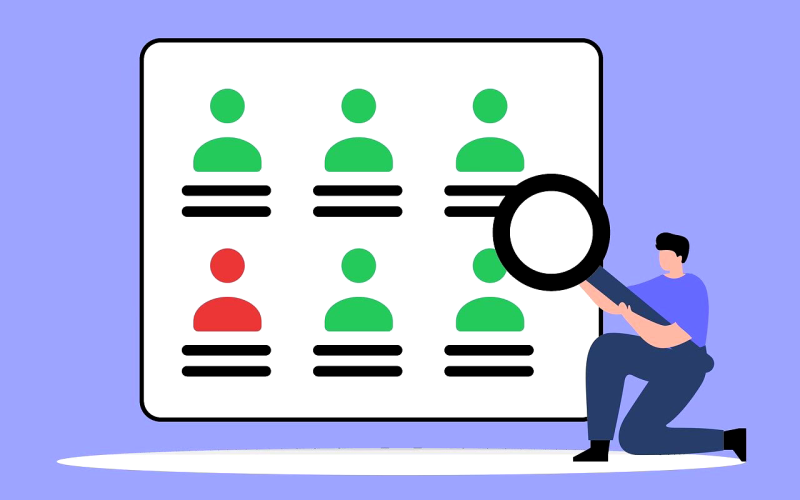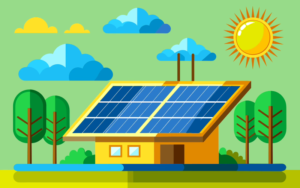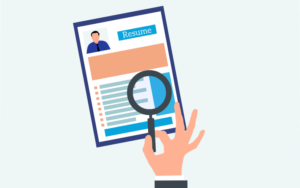ABSTRACT
The purpose of this study is to discuss the ethical issues in education in terms of teachers, students, schools, and software companies. Recent growth of the internet and World Wide Web allows new developments in the way instructors transfer knowledge to their students. Technology is a new tool in education that constantly changes and offers new opportunities for teaching and learning. Typically, the effects of technology are complex, hard to estimate accurately and likely to have different values for different people at different times. Its effects depend upon people’s decisions about development and use.
INTRODUCTION
We start our lives learning ethics from our parents. Those early lessons stay with us for a very long time if reinforced by society. So what is ethics? It is not the same as morals. It actually describes the character of one’s profession or one’s religion of practice
(Simpson, 2004). During the mid 1970s, a medical teacher and researcher Walter Maner first separated the term “computer ethics” as a branch of philosophy. During the 1980s, schools started using computers. A decade later, those computers connected to the internet. Not until November 1990 did schools’ curricula have any ethical or social applications in regards to the web. These curricula were added because of the Computer Science Accreditation Commission/Computer Science Accreditation Board (CSAC/CSAB) recommendation.
According to the Computer Ethics Institute, the curriculum programs should:
Not use a computer to harm other people
Not interfere with other people’s computer work
Not snoop around in other people’s computer files
Not use a computer to steal
Not use a computer to bear false witness
Not copy or use any software for which you have not paid
Not use other people’s computer resources without authorization
Not appropriate other people’s intellectual output
Always use a computer to respect other people
ETHICAL ISSUES
Privacy/confidentiality
Internet users consider privacy (security) to be one of the important issues. The usage of internet has grown explosively as fast internet connections get cheaper. However, a lot of the internet users (e.g. students) are not aware of the fact that personal information may be revealed when they go online. According to law, one cannot pass someone else’s private information to others. However, it is a known fact that companies take personal information collected on their websites and use it for telemarketing or sell it to another company. Anonymous information about users’ web-surfing habits might be merged with individual personal information. Websites use cookies to gather information about users, but disabling cookies prevents users from doing necessary things at some websites. Websites might email users to say that their privacy policies are changing, but most users find it difficult and time consuming to read and understand privacy policies or to figure out how to request that the use of their personal information be restricted. Online transactions of financial payments, grants, grade reports, and disciplinary actions are necessary for organizations such as universities and banks to function effectively. However, these transactions pose an additional risk to a student’s privacy. For example, when students post their assignments on the net, these assignments may/may not represent students’ beliefs, but if the assignment is controversial and if somebody can access it, it can jeopardize future employment or scholarship opportunities. Actually two main privacy acts protect students from those problems. These are:
Children’s Online Privacy Protection Act: to protect personal information for children
under the age of 13.
The Family Educational Rights and Privacy Act: to protect the privacy of students’
educational records and parental rights to informed consent.
Spamming/Hacking
Sending a large number of files through the network and causing the system to crash is “spamming”, is an abuse of information technology. A recent example occurred in New Delhi where the CBI has booked a school dropout teenager who had been “bombarding” a UK-based company with e-mails from India. In the spam mails, the accused had been asking the complainant to shut down one of the web sites being hosted from the company’s server and threatened to spam the service by sending explicit E-mails.
Property/Copyright
Copyright is an important issue since today’s music and movie companies fight for their copyrights. However, the internet provides many websites to users to access these companies’ products illegally. Even though there are many laws to protect property rights, this illegal access is ongoing. People argue that these products such as movie DVD’s and music CD’s cost too much. Still, it shouldn’t matter if we can look at the issue from an ethical perspective. Even though technology is a big part of our education system, there is an ongoing debate about who owns online educational materials, professors or the university. Since all the information is stored on the university database, its copyright belongs to the university. However, some faculty may argue that it’s their own product of information and the copyright should be theirs. Another debate is that the on-line version of a course may reduce the value of the faculty. So the question is, should the faculty focus on increasing their value to the university, or continue to teach accordance with the new face of educational innovation in order to improve students’ critical thinking.
Netiquette
One of the main purposes of the internet is to serve as a communication tool. All chat rooms provide easy and cheap access to find friends or just to post ideas about anything. However, this does not give people the right to send offensive pictures or messages to anybody. We know that with today’s technology, it is easy to access anybody’s messages. By keeping this in mind, students may be less likely to write something or send pictures offensive to others that they will regret later on.
Access
Technology should not primarily be used as a tool to reward students who finish their class work the fastest; instead it should be utilized as an opportunity for all students to engage in its interactive uses. In the internet environment, there are so many inappropriate places students can access. The Children’s Internet Protection Act requires public schools and libraries to take steps to prevent minors from accessing certain materials on cyberspace. Many filtering systems protect children from these inappropriate websites. The purpose of filtering software is to create a secure environment in which children interact online in a safe, educational, and entertaining context. Internet filters enable parents/teachers to block inappropriate sites or restrict access at certain times of day.
Accuracy/Trust Worthiness
Although there is a wide realm of information available on the net, there is no agency monitoring “truth or accuracy of information.” There is no restriction on false information. Teachers should inform their students about the situation to protect them from citing or reading incorrect information. Inaccurate information can cause confusion in society, and even medical and legal issues.
IMPACT
Technological developments have several impacts on our lives. These impacts economically, socially, interpersonally and educationally affect our daily lives. The economic impact of technology is mostly seen in economically challenged places. It creates a digital divide between poor and rich, rural and urban, developed countries and undeveloped countries. When technology serves as reinforcement between social classes, it makes accessibility to education even harder for the poor. However, the internet provides a good resource for people. For example, distance learning allows universities to increase their market, while reducing financial demands on student. Because of distance learning, many individuals may access different educational institutions, and may become lifelong learners. Besides these impacts on education there are also some drawbacks. For example in distance learning, it reduces the face to face interaction between students to students or/and students to teacher. Although the use of internet technology in education is fairly new, this emerging field is being used more widely. Educators can take more advantage of these innovations than before by incorporating them into their educational practices and to adapt to changes taking place in society.
Technology has brought about many advantages by making everyday activities to be quicker and
easier. However, it poses important questions on the ethical nature of the way that the technology
is used. We have enough experience to anticipate many of the issues and avoid them through
conscientious and ethically aware design.





Very informative writing!!